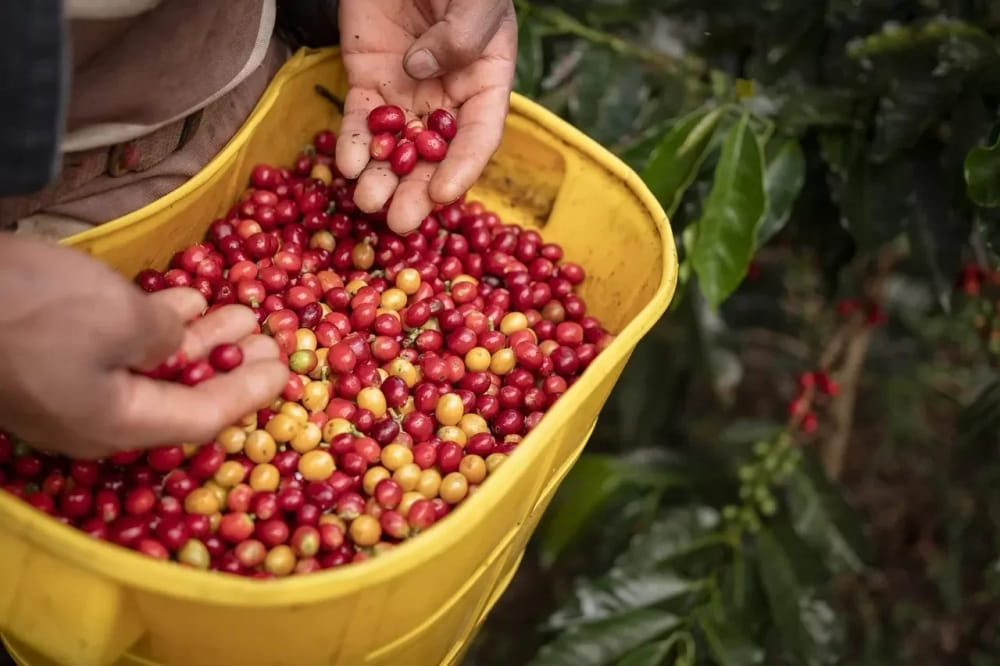Publicado em
- 4 min read
Transformative Shifts in the New York Coffee Market

The New York coffee market has undergone a remarkable transformation over the past six weeks, reflecting the dynamic and interconnected nature of global commodity markets. A combination of logistical changes, shifts in investment positions, and a notable decline in inventory levels has driven a substantial rise in Arabica coffee prices.
This period has highlighted the intricate dynamics of commodity trading, where multiple factors converge to influence market outcomes.
Recent Surge in Arabica Coffee Prices
» Unprecedented Increase in Coffee Futures
Arabica coffee futures have experienced significant growth, reaching a six-week high. The notable increase of 5.55 cents, or 3.4%, brought the closing price to $1.709 per pound. This surge underscores the volatile nature of commodity markets, where prices can fluctuate rapidly due to various influences.
» Peak Arabica Coffee Prices Draw Investor Interest
The highest recorded price during this period was $1.7135 per pound, which captured considerable attention from investors. This peak in prices reflects the heightened interest and activity in the coffee market, driven by underlying market conditions and speculative activities.
Historic Decline in Coffee Inventory
» Coffee Stocks at 24-Year Low
One of the most striking developments has been the dramatic decline in coffee inventory levels. Coffee stocks have plummeted to 360,009 bags, marking the lowest point in 24 years. This historic low in ICE-certified inventories has profound implications for market stability and pricing.
» Imbalance in Coffee Supply and Demand
The sharp decline in inventory levels highlights a significant imbalance between supply and demand in the coffee market. As inventories dwindle, the pressure on supply chains increases, exacerbating the volatility in prices and market behavior.
Impact of Brazilian Logistics on Global Supply
» Brazil’s Disruptions Affect Global Coffee Market
Brazil, the world’s leading coffee producer, has faced logistical challenges that have disrupted global supply chains. These disruptions have forced roasters to rely more heavily on stocks from the New York Stock Exchange, underscoring the interconnectedness of global markets.
» Worldwide Implications of Brazilian Coffee Logistical Issues
The logistical issues in Brazil have had a ripple effect on the global market. As the primary source of coffee experiences disruptions, the impact is felt worldwide, affecting prices, availability, and investment strategies.
Changing Investment Strategies in the Coffee Market
» Shift from Short to Long Positions in Coffee
Investors have responded to these market changes by shifting from short to long positions in coffee. This strategic pivot indicates a growing optimism and anticipation of continued price increases, as market players adjust their strategies to align with emerging trends.
» Growing Confidence Among Coffee Investors
The shift in investment strategies reflects a broader confidence in the future value of coffee. Investors are increasingly optimistic about the potential for sustained growth in the market, driven by the current dynamics of supply and demand.
Coffee Versus Cocoa Market Trends
» Diverging Trends in Coffee and Cocoa Markets
While the coffee market has seen a significant price surge, the cocoa market in London has exhibited a different trend. Cocoa prices have moved away from previous highs, illustrating the divergent paths that different commodities can take based on distinct market conditions.
» Expected Cocoa Deficit Influences Market Outlook
Despite the current trends, the anticipated global cocoa deficit in the 2023/24 season, due to decreased production in Côte d’Ivoire and Ghana, maintains a cautiously optimistic outlook for the cocoa market. This anticipated deficit highlights the complex and multifaceted nature of commodity markets, where various factors can influence outcomes.
The Complex Nature of Global Commodity Trading
The recent trends in the Arabica coffee market in New York are indicative of the multifaceted nature of global commodity trading. Factors such as inventory levels, logistical disruptions in key producing countries like Brazil, and shifts in investor strategies all play crucial roles in shaping market dynamics.
While the coffee market shows robust growth, other commodities like cocoa and sugar also demonstrate unique market dynamics, highlighting the interconnectedness and complexity of global commodity markets. Market participants must stay vigilant and adaptable to navigate these volatile environments successfully.
Conclusion
» Navigating the Volatile Commodity Market
The transformation in the New York coffee market over the past six weeks offers valuable insights into the complexities of global commodity trading. As Arabica coffee prices rise due to logistical changes, shifts in investment positions, and a significant decline in inventory levels, the intricate dynamics of the market come to the fore.
Understanding these dynamics is crucial for market participants aiming to navigate the volatile environments of commodity trading successfully. By staying informed and adaptable, traders and investors can better manage risks and seize opportunities in the ever-evolving landscape of global commodities.